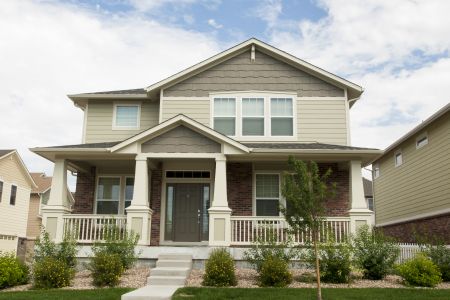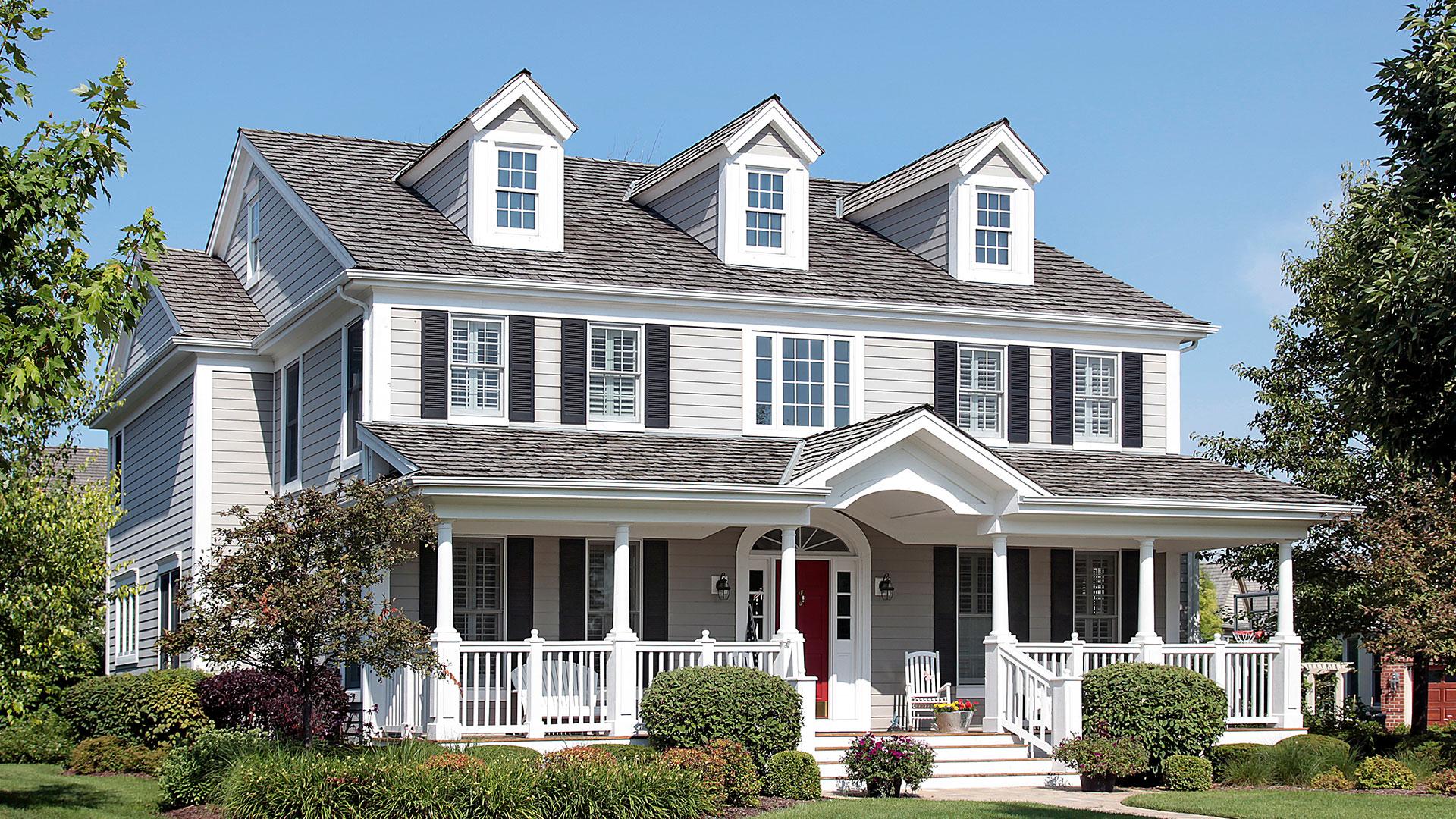Soft Washing vs. Pressure Washing: Which Is Best for Siding in Charlottesville?

Charlottesville homes face humid summers, dense tree cover, and long pollen seasons. That mix breeds algae, mildew, and grime on siding. The right cleaning method protects your home and keeps curb appeal high. For most siding, soft washing is the safer, more effective approach, and it is the method we recommend when homeowners ask about professional house washing.
What Soft Washing Means And Why It Works
Soft washing uses specialized detergents paired with very low water pressure. The solution does the heavy lifting by breaking down organic growth like algae, mildew, and lichen. A gentle rinse removes residue without stressing the surface. On vinyl, fiber cement, painted wood, and aluminum, soft washing cleans deeply while helping prevent damage.
Because the pressure stays low, water is less likely to be driven behind the siding or under trim. That means a reduced risk of moisture problems in wall cavities and fewer raised paint edges. It also helps maintain manufacturer recommendations that often call for low-pressure cleaning to protect finish and warranty language.
What Pressure Washing Means And Where It Fits
Pressure washing uses higher PSI to blast away soils, which can be useful on hard, durable surfaces. On most siding systems, though, too much pressure can leave visible wand marks, dent aluminum, lift paint, or force water into seams. That is why we reserve higher pressure for materials that can handle it, like many masonry patios or certain fence types, and we still control the nozzle distance and angle carefully.
On siding, the question is not Can pressure remove grime? It is At what cost to the surface. When the goal is a clean, even finish with minimal risk, soft washing is usually the smarter path.
Siding Materials And The Best Cleaning Method In Charlottesville, VA
Vinyl siding is common in neighborhoods from Belmont and Fry’s Spring to Forest Lakes. Soft washing is ideal here because it lifts biofilm from the textured grain without driving water behind panels. Fiber cement, including many James Hardie installations, also responds well to soft washing and controlled rinsing that respects paint systems. Painted wood on historic homes near North Downtown benefits from low pressure to avoid lifting older coatings.
Aluminum siding cleans up beautifully with soft washing when oxidation is handled with the right detergents. Stucco, both traditional and synthetic, needs a gentle touch. Soft washing limits surface etching and helps prevent cracks from widening. Brick veneer often has organic staining on the north sides of homes around Pantops and Earlysville. A hybrid approach works here, using detergents first and then a careful rinse that avoids saturating weep holes.
Local Factors That Affect Siding Cleaning In Charlottesville
Central Virginia’s climate plays a big role in how fast siding gets dirty. Summer humidity fuels green algae on the north and east sides of homes. Oak and pine pollen cling to textured panels in April and May. Red clay splash-back can streak the lower rows after storms. In winter, freeze-thaw cycles stress older caulk lines, so keeping water out of those seams matters.
Tree cover is another driver. Homes tucked under mature canopies in Keswick, Ivy, and Crozet tend to grow algae faster. If your gutters drip or a downspout splashes onto siding, you will see tiger-striping beneath those lines. A method that removes the growth rather than scouring the surface is key to stopping quick reappearance.
When Soft Washing Is The Better Choice
In most Charlottesville cases, soft washing gives you the best balance of clean and care. Here is why it wins out for typical siding:
- It treats the cause of the staining by breaking down algae and mildew colonies.
- It protects paint, caulk, and trim from the scarring and water intrusion that high pressure can cause.
- It delivers an even finish across large walls without zebra-striping or wand marks.
- It is friendly to landscaping when paired with plant-safe practices and thorough rinsing.
High pressure can force water behind lap joints and under window trim. Once moisture sits in the wall cavity, you risk staining, swelling, or interior drywall issues. Soft washing avoids that by using chemistry to clean and a gentle rinse to finish.
When Higher Pressure Makes Sense
There are times when more pressure is appropriate, though it is still controlled. On robust masonry like certain brick or stone features, a careful increase can help remove mineral crusts after a detergent dwell. On composite decks or fences rated for it, we may step up pressure slightly after testing a hidden spot.
Even then, the rule is to start with the least aggressive method that achieves the goal. We test, measure distance, and keep nozzles moving to protect the surface. If any doubt remains, we switch back to detergents and dwell time rather than pushing PSI.
Choosing The Right Method For Your Home
Think about the surface, the age of the paint or panels, and the kind of grime you see. Algae film, mildew shadows, and pollen build-up respond best to low pressure. Oxidation or old paint chalking requires detergents made for that problem, not brute force. Around Charlottesville, the shaded sides that face the Rivanna and shaded hollows near the foothills tell us soft washing will almost always be the winner.
- If you see green film that returns quickly after storms, choose soft washing.
- If paint is older or you have historic wood, choose soft washing and gentle rinses.
- If you have decorative stucco bands or EIFS, avoid high pressure.
- If the material is masonry and grime is mineral based, evaluate with a spot test first.
When in doubt, protect the substrate first and clean second. You will get a better long-term result and fewer maintenance issues.
How Stang's Softwash and Pressure Washing Protects Your Home
Our process starts with a detailed walk-around to note siding type, paint age, and sensitive areas like outlets, door sweeps, and attic vents. We cover or pre-wet plants and evaluate drainage so rinse water moves away from foundations. We apply a targeted solution that attacks organic growth and let it dwell long enough to work.
We follow with a low-pressure rinse aligned with panel laps to keep water out of seams. On oxidized aluminum or chalky paint, we use detergents designed for that issue. Trim, soffits, and gutters get special attention because streaks tend to collect there. The result is a uniform, bright finish that looks fresh without the risks of high pressure.
If you have been comparing options, our team is happy to show how a soft wash preserves curb appeal and material life. For homeowners seeking a deeper dive into the method, our house washing page explains what to expect during service and how we plan the visit around weather.
Myths Charlottesville Homeowners Hear
Myth: “High pressure cleans better.” Reality: Chemistry plus time beats force on most siding. Pressure alone smears biofilm and can scar finishes.
Myth: “Detergents are harsh.” Reality: We use solutions matched to the surface and rinse thoroughly. The goal is a clean home and healthy landscaping.
Myth: “Soft washing is just a garden hose.” Reality: It is a calibrated system that controls solution strength, flow, and rinse to protect the surface while removing growth.
Seasonal Timing For Central Virginia Homes
Early spring and early fall are prime windows for siding care in Albemarle County. Spring cleaning clears pollen film before summer humidity hits. Fall cleaning removes the season’s growth so it does not set in over winter. Summer works too if scheduled in the morning shade to protect plants and finishes. Winter can be fine on mild days, but avoid washing in freezing conditions or when temperatures will drop shortly after to prevent icy surfaces.
Homes along the foothills near Ivy and Crozet with heavy shade may benefit from two cleanings per year. Sun-soaked homes in Pantops or Lake Monticello often do well with one. The frequency varies by exposure, landscaping, and roof overhangs. If you are unsure, start with a spring visit and reassess growth by late summer.
Why The Method Matters For Long-Term Results
Cleaning is not just about today’s shine. It is about how your siding looks six months from now. Soft washing removes the organisms that cause the stains, so regrowth slows. That means better-looking siding for longer between visits. It also reduces the risk of premature paint failure or water intrusion that can happen when high pressure is used carelessly.
Preserving caulk joints and window seals matters in older homes near North Downtown and Belmont. Gentle rinsing and smart wand angles keep those areas intact. Over time, that care helps your home shed rain properly and keeps the envelope tight.
How To Pick A Provider You Can Trust
Look for clear descriptions of process and detergents used. Ask how the team protects landscaping and handles runoff. Request details about pressure settings for each surface. Professionals should talk about testing, dwell times, and rinse patterns rather than boasting about PSI. Ask for biodegradable solutions and a low-pressure approach on siding to balance clean and care.
If you want a quick reference, bookmark this guidance: gentle on the siding, tough on the growth. That simple rule will steer you right across vinyl, fiber cement, painted wood, and aluminum.
To learn more about soft washing in Charlottesville, VA and how it keeps siding looking new, explore our resources or speak with our team about your home’s specific challenges.
Ready For Cleaner Siding In Charlottesville?
You can enjoy a bright exterior without risking the surface. Schedule your next house washing service with Stang's Softwash and Pressure Washing and we will tailor the method to your siding and the season. Call us at 434-906-9593 to pick a convenient time and get your home looking its best again.
Your home is one of your biggest investments. Choose the method that cleans it well and keeps it protected for the long run. Call us today for pressure or soft washing in Charlottesville.

RECENT TIPS
-
Does Solar Panel Cleaning Improve Output in Charlottesville?
Short answer, yes. Solar panel cleaning in Charlottesville can restore the sunlight your panels lose to pollen, dust, and leaf debris, which means more energy produced and a happier utility bill. If you want a simple, safe way to keep your array working at its best, […]
-
Concrete & Driveway Cleaning: How Long Does It Last in Central VA?
If you want your driveway to look bright and welcoming, professional driveway cleaning is the fastest way to get there. In Central Virginia’s mix of hot summers, colorful falls, and freeze-thaw winters, the big question is how long the clean look really lasts and what you […]